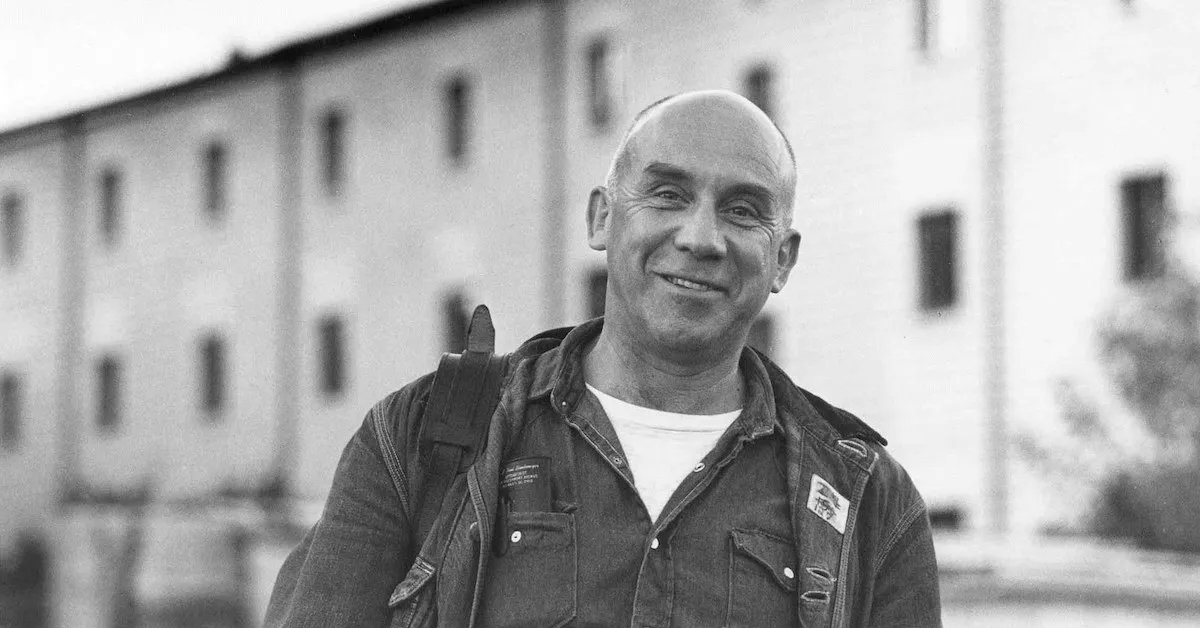
The Illusion of Our False Self by James Finley (second piece is – “Thomas Merton, abridged and adapted from “New Seeds of Contemplation“)
Guest writer and CAC faculty member James Finley continues exploring insights on the true self and false self that he gleaned from Thomas Merton.
In the following text, Merton makes clear that the self-proclaimed autonomy of the false self is but an illusion:
Every one of us is shadowed by an illusory person: a false self.
This is the man I want myself to be but who cannot exist, because God does not know anything about him. And to be unknown of God is altogether too much privacy.

“The Wandering Taoist” — story by Solala Towler (transcript from YouTube)
The cold wind blowing off the western desert ruffled the beard of the old man riding slowly atop the water buffalo. It whipped around his traveling cloak and made him shiver deep within his robes. He tried wrapping the cloak a little tighter around his shoulders but it did him little good. It was a bad time of the year for traveling, but that could not be helped. The stolid beast plodded on slowly toward the frontier.
A horse would have been faster, but this beast was steadier, more surefooted in the mountains and ate very little. He supposed it was a bit of reverse vanity that prompted him to travel on so humble a mount, the last vestige of the once proud royal archivist.
SUPPORT THE GOOD WORK OF SOLALA TOWLER
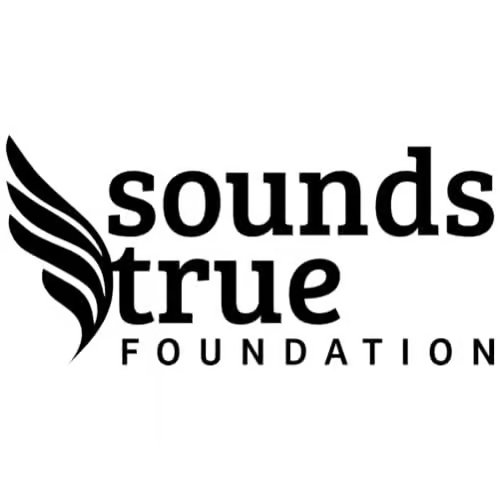
Neil Douglas-Klotz on The Aramaic Jesus by Tami Simon
Tami Simon: You’re listening to Insights at the Edge. Today my guest is Neil Douglas-Klotz. Neil is a world-renowned scholar in religious studies, spirituality, and psychology. He holds a PhD in religious studies and psychology from the Union Institute and taught these subjects for 10 years at Holy Names College in California. Living now in Edinburgh, Scotland, Neil Douglas-Klotz directs the Edinburgh Institute for Advanced Learning. He’s the author of several books including Prayers of the Cosmos, The Hidden Gospel, The Genesis Meditations, and The Sufi Book of Life. With Sounds True, Neil has published three audio-learning courses including the new program, I Am: The Secret Teaching of the Aramaic Jesus. Neil has also written the Sounds True book, Blessings of the Cosmos—which includes a corresponding CD of 20 guided Aramaic body prayers—where he presents a collection of all new translations of Jesus’ best-loved benedictions and invocations for peace, healing, and divine connection.
Tami Simon: You’re listening to Insights at the Edge. Today my guest is Neil Douglas-Klotz. Neil is a world-renowned scholar in religious studies, spirituality, and psychology. He holds a PhD in religious studies and psychology from the Union Institute and taught these subjects for 10 years at Holy Names College in California. Living now in Edinburgh, Scotland, Neil Douglas-Klotz directs the Edinburgh Institute for Advanced Learning. He’s the author of several books including Prayers of the Cosmos, The Hidden Gospel, The Genesis Meditations, and The Sufi Book of Life. With Sounds True, Neil has published three audio-learning courses including the new program, I Am: The Secret Teaching of the Aramaic Jesus. Neil has also written the Sounds True book, Blessings of the Cosmos—which includes a corresponding CD of 20 guided Aramaic body prayers—where he presents a collection of all new translations of Jesus’ best-loved benedictions and invocations for peace, healing, and divine connection.

Longing for the Beloved by Mirabai Starr
There is a longing that burns at the root of spiritual practice. This is the fire that fuels your journey. The romantic suffering you pretend to have grown out of, that remains coiled like a serpent beneath the veneer of maturity.

Punisher or Pushover? How is Wrath “God’s” by Brad Jersak
As we continue to preach and teach the NT message that “God is Infinite Love,” embodied in Christ and revealed on the Cross, it is right that we should continually challenge and be challenged by “the wrath of God.” That challenge requires us to keep returning to the Scriptures and to the Lord for greater clarity, because such great potential for error persists. We dare not slander God, either as a violent punisher or a spineless pushover, because such images serve as stumbling blocks, especially to those suffering under the consequences of their poor choices or those of somebody else.
SOURCE: Christianity Without Religion

Buddha at the Gas Pump Interview with Seán ÓLaoire
My guest is Father Seán ÓLaoire. He was born in Ireland and earned a Bachelor of Science degree in Mathematics from the National University of Ireland. He was ordained a Catholic priest in 1972 and spent 14 years working in Kenya. He is multilingual. I think he’d say he speaks about five languages and has an MA and PhD in Transpersonal Psychology. He’s a licensed clinical psychologist in private practice and is the Co-Founder and the Spiritual Director of a nondenominational community called Companions on the Journey, based in Palo Alto, California. He’s the author of five books and co-author of a sixth, and just for kicks, I’ll read the five books: So one is in Swahili, which I’m not going to try to pronounce; that was his first one. Another is Spirits in Spacesuits: A Manual for Everyday Mystics (2003); Souls on Safari (2006), also translated into German; A Sensible God, published in 2008; Why: What Your Life is Telling You About Who You Are and Why You’re Here, published in 2013, and he co-authored that with Matthew McKay and Ralph Metzner; — it’s translated into Korean — and then Setting God Free: Moving Beyond the Caricature We’ve Created in Our Own Image, published in 2021. That’s the one that I just listened to over the past week or two, and I enjoyed it a lot. And that’s probably what we’re mostly going to be talking about today, the topics covered in that book, but I told Seán that he should feel free to bring up anything he’d like to discuss, and we’ll talk about it, and of course, any questions that you all send in, we’ll talk about those, too.
SOURCE: https://batgap.com/sean-olaoire/
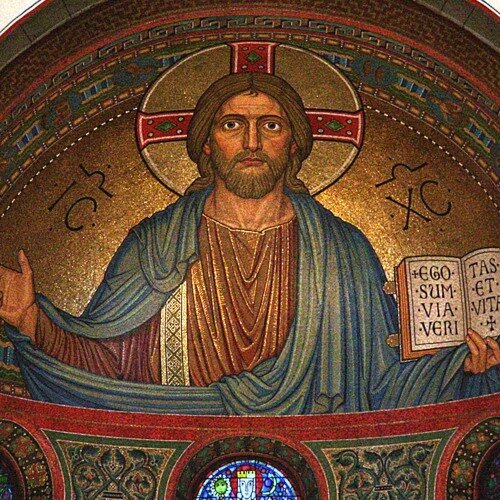
“What, in God’s Name, is Christ Consciousness?” (Part 2) by Seán ÓLaoire
Jesus told many parables whose purpose, I believe, was to help the listeners differentiate between the ego and the soul. For example, he tells of a rich man who, before he went away on a long trip, set a manager in charge of his property and workers. The rich man delayed in coming back, so the manager figured he had gotten lost or had died. So, he began to regard the property and the workers as his own – and started to get drunk and abuse them. How to interpret this? I don’t think that the rich man was God and that the manager represented the typical sinful human, whom God would punish. Rather, I believe, that the rich man represents the soul and the manager represents the ego. Very often, we mistake our egos for our souls and neglect our incarnational missions.
SUPPORT SEAN O’LAOIRE’S GOOD WORK AND PATHEOS.COM

PODCAST: Learning How to See with Brian McLaren — Episode: “Find the Flow” (feat. Jacque Lewis)
What would it mean for us if we happened to live during the decline of the old humanity when a new humanity is in the painful, fragile process of being born? What if some of us are in the process of trying to resuscitate the old, while others of us are conceiving, gestating and giving birth to the new? What if the growth of the new movement, the new humanity, the new social creation or construction depends on the old one losing its hegemony? As I write those words, I can’t help but feel a flood of resonances with the Hebrew scriptures. I feel echoes of Isaiah speaking of God doing a new thing. Something fresh springing forth so that there will be good news for the poor, recovery of sight for the blind, freedom for the incarcerated and oppressed. Oppression of the poor is one of the hallmarks of the old humanity.

"Yin: Beloved Dark" by Jeannie Zandi
While your eyes are closed, I want to invite you to let your whole body soften. Let your attention sink into your felt experience. You might take a few long breaths. Focusing on the exhale, just to let the whole body settle. And gentle. Noticing the weight of the body sinking into your chair, into the earth. Letting your root soften open to the earth, as much as it can. Letting your belly be fat. Inviting the solar plexus to soften with breath. The heart to soften. The hands. The face. Let every expression just droop off of your face. Just here. Softy. Letting breath travel around your body. Softening as it goes. Softening all around the things that are tight, letting them be here. Letting them float along in our soft pool of being. Little nuggets of tenseness floating in this soup of being. And this is the voice of yin. The voice that invites softening, the voice that invites sinking, the voice that invites receptivity, availability. The voice that calls us to soften and dissolve. Give into gravity.
SUPPORT MS. ZANDI INSPIRING WORK
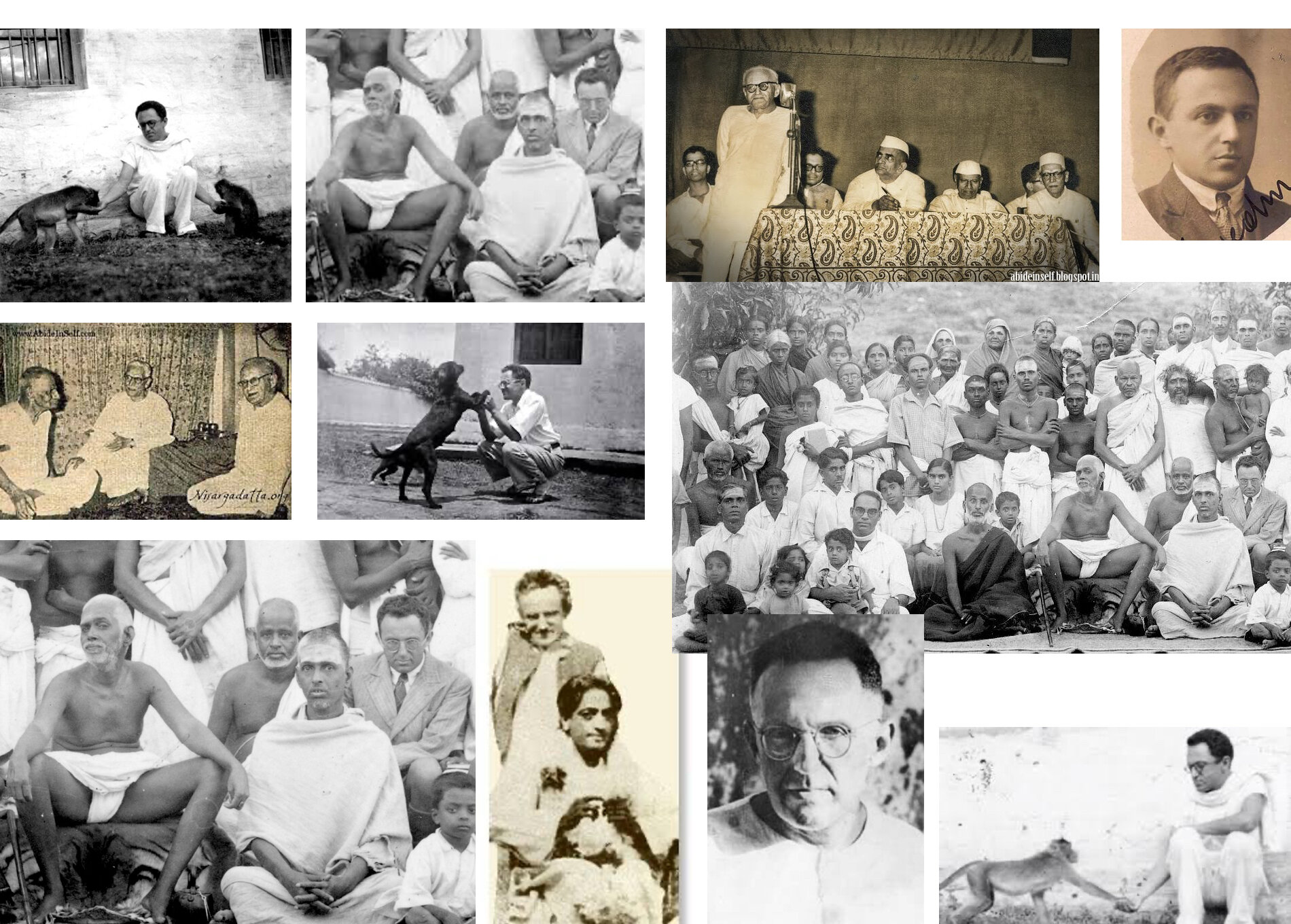
David Godman interview - Buddha and the Gas Pump (excerpt on Maurice Frydman)
David: Maurice Frydman is one of the most extraordinary people I have ever come across and virtually nothing is known about him. Because of his connection with Ramana Maharshi, Krishnamurti, Gandhi, Nisargadatta, the Dalai Lama, I kind of view him in my own mind as the Forrest Gump of 20th century spirituality. He was in all the right places in all the right times to get the maximum benefit from interactions with some of the greats of Indian spirituality, and at the end of his career he was just about the only person that Nisargadatta certified as a jnani.
So in between all these trips to India’s major gurus, he was a Gandhian; he worked for the uplift of the poor in India; he worked with Tibetan refugees; he edited extraordinary books. I am That is probably one of the all-time spiritual classics. This man for me is, how shall we say, a shining beacon of how devotees could and should be with their teachers. He was just an absolutely extraordinary man. Oh, and he went out of his way to cover his tracks, to hide what he had actually accomplished in his life.
So I have enjoyed the detective work of looking in obscure places and digging out stuff that he personally tried to hide, not because it was embarrassing, but because he didn’t like to take credit for what he had done. So I see this as an opportunity to wave the Maurice flag and say, ‘Look, this is one of the greatest devotees, sadhaks, seekers from the west who has been to India in the last 100 years and I think more people should know about him.’
BE A SUPPORTER OF BUDDHA at the GAS PUMP

What, in God’s Name, is Christ Consciousness? (Part 1) by Seán ÓLaoire
Quite frequently, in homilies, lectures and writings, I use the phrase, “Christ Consciousness.” Some weeks ago, a parishioner asked if I might deliver a full ‘sermon’ on the topic. So, I did; and this blog, in two parts, is the result.
I don’t believe for a moment that Jesus of Nazareth was the only ‘avatar’ to exemplify and teach on this topic. Very similar ideas can be found in the terms, “Buddha nature” (in Buddhism) and “Self-realization” (in Hinduism). And I would claim that even the Christian term “Salvation”, properly understood, is really the same idea. Of course, all of these articulations of the great mystical traditions have been misinterpreted and even abused as control mechanisms. More about that anon.
BE A SUPPORTER OF FR. SEAN O`LAOIRE’S WORK

“Infallibility and Its Errors, Part 3: The Infallibility of the Bible” by Seán ÓLaoire
The infallibility of the Bible
And the fourth shock to my hopes for some bastion of infallibility came as I studied the Bible. It, too, for all its wisdom and insights, has been filtered, edited, redacted and massaged by hundreds of generations of priests, translators and, yes, even emperors.
I have learned lots from newspapers, from theology, from science and from the Bible, but I am duty bound to separate truth from tactic, and fact from fiction; to recognize metaphor and allegory and distinguish those from historical data.
BE A SUPPORTER OF FR. SEAN’S WORK

“What If You Could Interview God?” by Alan Watts
If you were told that you were going to be given half an hour's interview with God and you had the privilege of asking one question, I wonder what you would ask? You might be given some preparation too. Because when you think what is your ultimate question? You'll probably do many things before you arrive at it. And I know many people would discover that they had no question to ask. The situation would be altogether too overwhelming. But many people to whom I’ve put this problem say that the question that they would ask is “who am I?” That is something we know very little about — because whatever it is that we call “I”, is too close for inspection. It's like trying to bite your own teeth or to touch the tip of your finger with the tip of the same finger. Although other people can tell you what or who you are and do. They only see you from the outside, as you see them from the outside. You don't see from the inside. And so the nature of what it is that we call I is extremely puzzling because there is some confusion as to how much of us is “I”.
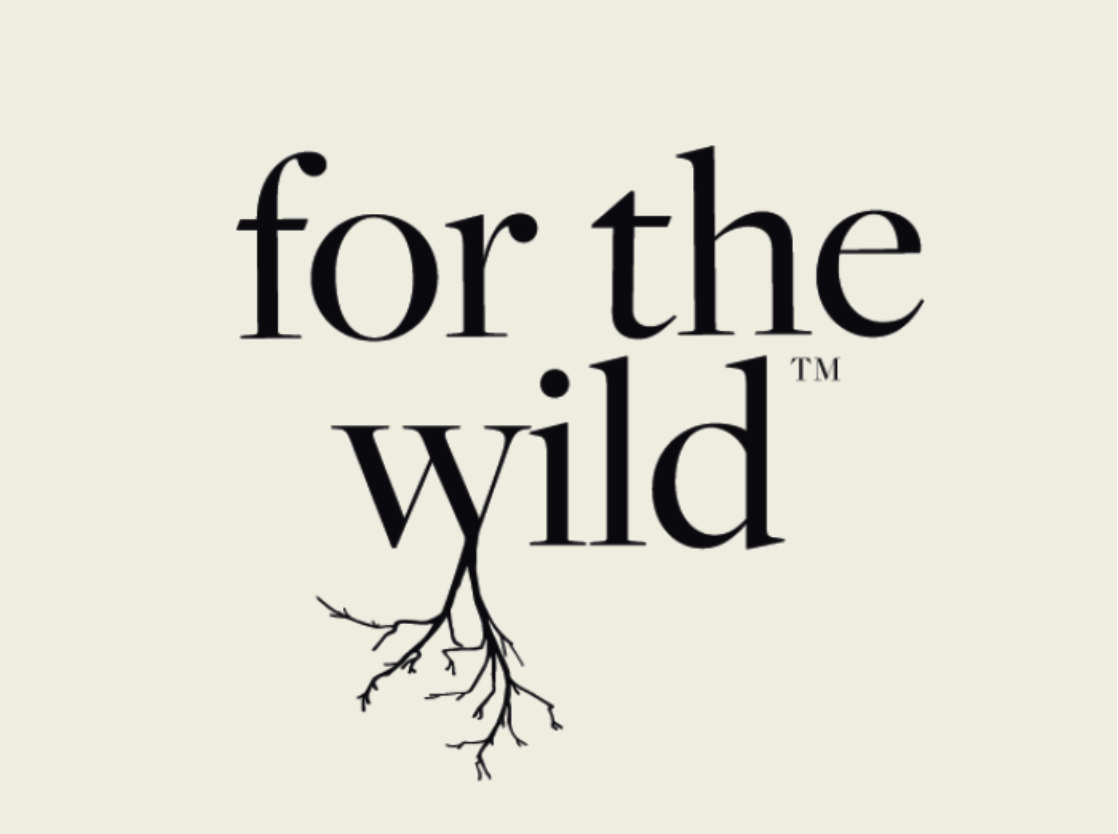
“Michael Meade on Cultivating Mythic Imagination /124” Interview by ‘FOR THE WILD’
The crises of cosmological, mythological and psychological disconnection from nature and from each other may drive us to places of darkness and suffering; and yet there is great potential in that darkness to interact with creative energy. Retracing meaning through archetypal myth offers an opportunity to understand the great challenge of our time to heal the planet from its wounds, and to refresh our dominant worldview with one based on connection. This week, journey into Michael Meade’s expansive vision of awakening ancient meaning for the individual and collective consciousness.

"The Religious Dilemma: Fundamentalism or Mysticism (the Road Less Traveled)?" by Father Seán ÓLaoire
I’ve never found a satisfactory definition of religion, though I’m certain of its origin, which I take to be the Impulse of Spirit. However, humans have a penchant for screwing up all great ideas. The least deadly screw up, perhaps, is to allow the impulse to stagnate theologically; and the deadliest is to weaponize it.
BE A SUPPORTER OF FR. SEAN’S WORK

“The Mystical Core of Organized Religion” by BR. DAVID STEINDL-RAST, OSB
Mysticism has been democratized in our day. Not so long ago, “real” mystics were those who had visions, levitations, and bilocations — and, most important, were those who had lived in the past; any contemporary mystic was surely a fake (if not a witch). Today, we realize that extraordinary mystical phenomena have little to do with the essence of mysticism. (Of course, genuine mystics had told us this all along; we just wouldn’t listen.) We’ve come to understand mysticism as the experience of communion with Ultimate Reality (i.e., with “God,” if you feel comfortable with this time-honored, but also time-distorted, term).

“Prayer and Identity” by Beatrice Bruteau
The way into the spiritual life is a matter of radical transformation. The further we progress along it, the more radical we realize the transformation has to be. The whole work of prayer is to cause, to control, and to appreciate certain transformations. Fundamental to these, so far as I see at present, is the sense of identity. The work of prayer is to transform our sense of identity. The Letter of James in the New Testament contains this passage:
If anyone is a hearer of the word and not a doer, he is like a man who observes his natural face in a mirror; for he observes himself and goes away and at once forgets what he was like. But he who looks into the perfect law, the law of liberty, and perseveres, being not a hearer that forgets but a doer that acts, he shall be blessed in his doing. (James 1:23-25)
We can apply these words to our work in prayer. The prayer state, when developed, should be, first a mirror, and then a real environment, of our natural face. It is a matter of looking, with perseverance, into the perfect law of liberty—what I will later call creative freedom — until there is no more question of our looking away and forgetting our true identity. Insofar as we are not prayerful, we are at present in a state of forgetfulness; we do not know who we are.
SOURCE: http://webhome.auburn.edu/~silvesb/smicha/Bruteau.pdf

“The Unknown” by Jeannie Zandi
When we slip out of the known, into a little gap, we oftentimes feel great discomfort. Let’s say in the middle of daydreaming in class, the teacher calls on you and you have no idea what they are talking about. There’s a gap of “I don’t know,” and a kind of terror that can rise. I should have something to show for myself! What if I’m speaking in front of a group and I don’t know what to say? Oh no! Toddlers seem to survive this all the time as they gaze at each other, taking up space for long periods of time, just there, without content. Despite the fact that there is generally no imminent threat to survival, we are terrified of this gap of “I don’t know,” this moment when we might feel that we don’t have our ducks in a row, when we don’t know what’s going on.

“Jesus and Buddha: Two Messengers of Light” from the Red Wing UU Community
Two sons of Wisdom, two sages and prophets
Two World teachers with hundreds of millions of followers.
Two moral and spiritual revolutionaries who changed everything in their times and much in ours.
Their ministries even altered how their cultures measure time: Christian calendars start with the death & resurrection of Jesus Buddhist calendars begin with the death & paranirvana of Buddha.
I will be offering side by side comparison of the teachings of Jesus and Buddha on 3 key points:

“Nourishing Yin” by Jeannie Zandi
Would you like to go on a journey into yin? If so, you might find a space where you won’t be disturbed, where you feel safely held, and can soften and open without being disturbed.While your eyes are closed, I invite you to let your whole body soften. Let your attention sink into your felt experience. You might take a few long breaths, focusing on the exhale, to let the whole body settle and gentle. Notice the weight of the body sinking into your chair, into the earth, and let your root soften open to the earth, as much as it can. Let your belly be fat, invite your solar plexus to soften with breath, the heart to soften, the hands, the face. Let every expression droop off of your face. Just here, soft. Let breath travel around your body, softening as it goes. Soften all around the things that are tight, letting them be here, letting them float along in your soft pool of being, little nuggets of tenseness floating in this soup of being. This is the call of yin, the voice that invites softening, sinking, receptivity, availability. The voice that calls us downward, to relax and dissolve, to give into gravity.

